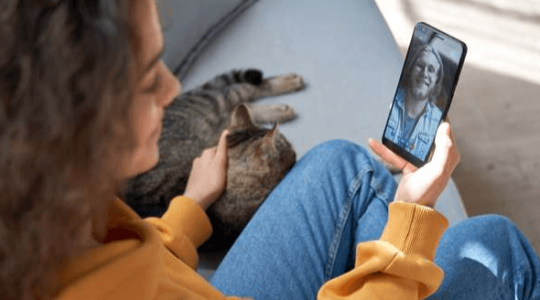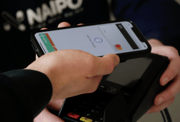Woman devastated as online romance costs her life savings
- Replies 28
As romance scams continue to rise throughout Australia, it's crucial to understand what to watch out for and how to protect yourself.
In a heart-wrenching turn of events, a distressing scam known as 'pig butchering' (inspired by the idea of 'fattening up' a victim before slaughter) has completely upended the life of a hopeful woman on a dating app.
What began as seemingly innocent digital exchanges with her suitor quickly spiralled into a series of unfortunate events, leaving one woman stripped of her life's savings—a staggering $157,000.
So, what happened? Let's dive more into the story.

According to news sources, the woman, 44, from Sydney initially connected with a profile on an online dating app. After engaging in a promising conversation, they decided to move their chat to WhatsApp.
During their ongoing conversation, the man, with whom she had exchanged hundreds of messages, convinced her to venture into cryptocurrency trading—a side hobby he pursued alongside his construction work.
What made the situation seem legitimate was the fact that the profile appeared to belong to a real person, as it was 'verified'.
When they switched to WhatsApp, the phone number appeared to be Australian, too.
Her trust in the other person grew, leading her to create an account on the cryptocurrency exchange site CoinSpot, where she converted her money into digital currency.
She was also persuaded to conduct her currency trading on the MEXC platform, another reputable company. However, it was later revealed that the website she had been directed to was a fake.
Sadly, though, she did not realise it soon enough.
Looking back, she remembered that it has all the typical elements one would expect, including a customer service department, a rewards chart, and purported 'deals and profits' within her account.
Initially, the woman had reservations, but her 'lover' demonstrated a method where she could deposit a small amount of cash and withdraw it immediately. This reassured her, as she felt she could back out at any time if things turned sour.
'After that, I just transferred everything. I was adding $10,000, $20,000. I kept putting more in,' she told the news source.
The man even contributed to her account to 'boost' her profits.
However, this marked the beginning of a downward spiral. Her suspicions were aroused when they instructed her to withdraw everything, claiming that the 'good trading period was over'.
She was then informed that to access her money, she needed to provide a $40,000 security deposit. However, once she complied with this request, she was informed that she had to pay double that amount.
At this point, she had depleted her funds, so she emptied her redraw account and turned to a friend for a $40,000 loan, a decision she would regret deeply.
When she confronted her 'lover' about the money, they acted confused and eventually severed all communication with her.
Upon realising that she had fallen victim to a scam, she contacted the police, but the scammer's digital trail led them outside of Australia, rendering local authorities powerless to investigate.
The woman, who confessed she had always been meticulous about following the rules, now faced the daunting task of applying for a larger loan to repay her friend.
Although she had lost her savings, she was thankful that she hadn't lost 'everything'.
'I still have my property, and I still have my super. But, with $157,000 gone, I won't come back from this for years,' she said.

We want to prevent stories like these from happening again, so we encourage all members to be cautious online. Don't hesitate to ask questions if something appears too good to be true.
If you ever feel unsure about your interactions on the internet, contact a trusted source, such as your bank or legal advisors. Remember, it's better to be safe than sorry.
If you have any tips or personal stories about romance scams, please share them with us in the comments below. Your experiences and insights can help protect others from falling into similar traps.
In a heart-wrenching turn of events, a distressing scam known as 'pig butchering' (inspired by the idea of 'fattening up' a victim before slaughter) has completely upended the life of a hopeful woman on a dating app.
What began as seemingly innocent digital exchanges with her suitor quickly spiralled into a series of unfortunate events, leaving one woman stripped of her life's savings—a staggering $157,000.
So, what happened? Let's dive more into the story.

A woman was fleeced of her life savings in a cruel ‘pig butchering’ dating scam. Credit: Shutterstock.
According to news sources, the woman, 44, from Sydney initially connected with a profile on an online dating app. After engaging in a promising conversation, they decided to move their chat to WhatsApp.
During their ongoing conversation, the man, with whom she had exchanged hundreds of messages, convinced her to venture into cryptocurrency trading—a side hobby he pursued alongside his construction work.
What made the situation seem legitimate was the fact that the profile appeared to belong to a real person, as it was 'verified'.
When they switched to WhatsApp, the phone number appeared to be Australian, too.
Her trust in the other person grew, leading her to create an account on the cryptocurrency exchange site CoinSpot, where she converted her money into digital currency.
She was also persuaded to conduct her currency trading on the MEXC platform, another reputable company. However, it was later revealed that the website she had been directed to was a fake.
Sadly, though, she did not realise it soon enough.
Looking back, she remembered that it has all the typical elements one would expect, including a customer service department, a rewards chart, and purported 'deals and profits' within her account.
Initially, the woman had reservations, but her 'lover' demonstrated a method where she could deposit a small amount of cash and withdraw it immediately. This reassured her, as she felt she could back out at any time if things turned sour.
'After that, I just transferred everything. I was adding $10,000, $20,000. I kept putting more in,' she told the news source.
The man even contributed to her account to 'boost' her profits.
However, this marked the beginning of a downward spiral. Her suspicions were aroused when they instructed her to withdraw everything, claiming that the 'good trading period was over'.
She was then informed that to access her money, she needed to provide a $40,000 security deposit. However, once she complied with this request, she was informed that she had to pay double that amount.
At this point, she had depleted her funds, so she emptied her redraw account and turned to a friend for a $40,000 loan, a decision she would regret deeply.
When she confronted her 'lover' about the money, they acted confused and eventually severed all communication with her.
Upon realising that she had fallen victim to a scam, she contacted the police, but the scammer's digital trail led them outside of Australia, rendering local authorities powerless to investigate.
The woman, who confessed she had always been meticulous about following the rules, now faced the daunting task of applying for a larger loan to repay her friend.
Although she had lost her savings, she was thankful that she hadn't lost 'everything'.
'I still have my property, and I still have my super. But, with $157,000 gone, I won't come back from this for years,' she said.
Key Takeaways
- A Sydney woman lost $157,000 to a dating scam called 'pig butchering'.
- She was convinced by the scammer to trade cryptocurrency on fake sites, resulting in the loss of her life savings.
- The scammer cut all contact with her after she made payments to withdraw her alleged earnings.
- The victim is currently applying for an increased loan on her mortgage to pay back borrowed money.
We want to prevent stories like these from happening again, so we encourage all members to be cautious online. Don't hesitate to ask questions if something appears too good to be true.
If you ever feel unsure about your interactions on the internet, contact a trusted source, such as your bank or legal advisors. Remember, it's better to be safe than sorry.
If you have any tips or personal stories about romance scams, please share them with us in the comments below. Your experiences and insights can help protect others from falling into similar traps.







